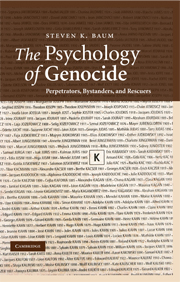5 - Rescuers
Published online by Cambridge University Press: 05 June 2012
Summary
Do not stand while your neighbor's blood is shed.
Leviticus 19:16– A chimpanzee named Nim Chimsky regularly sought to comfort people. If he saw a person crying, he would climb up to the individual and try to wipe the tears away.
– A scientist forgot his lunch and tried to knock some bananas down with a stick. An observant chimp climbed down the tree and handed a banana to the researcher.
– A mother chimp died, then her son adopted his year-old sister, taking her into his sleeping nest and carrying her around wherever he went.
Recall the news story a few years ago of Binti Jua, a gorilla from the primate exhibit at Chicago's Brookfield Zoo. One summer's day a three-year-old boy fell eighteen feet down into the exhibit. Terrified patrons looked on as Binti picked up the child and cradled him, giving him a few pats on the back before handing him over to zoo staff. “I could not believe how gentle she was,” observed the zoo director.
Similar behavior has been seen in chimps who “comfort” each other after an attack or other trauma. It begs an immediate question as to why it is seems not as common in humans – or is it?
“This is not happenstance” child researcher Marian Radke-Yarrow told the New York Times. She and NIMH colleague Carolyn Zahn-Waxler's study of more than 300 children revealed that children as early as 12 months old touched, patted or offered some other sympathetic gesture to a person who appeared distressed.
- Type
- Chapter
- Information
- The Psychology of GenocidePerpetrators, Bystanders, and Rescuers, pp. 181 - 219Publisher: Cambridge University PressPrint publication year: 2008



